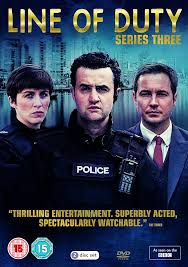The Cultural Impact of Line of Duty on British Television

Introduction
Line of Duty, a British police procedural drama aired on BBC One, has garnered immense popularity since its debut in 2012. As a series that delves deep into the complexities of law enforcement and the fight against corruption within the police force, it has not only entertained millions but has also sparked conversations about policing in the UK. Its thought-provoking narratives and intricate characters showcase the moral dilemmas faced by police officers, making it a significant cultural touchstone in contemporary television.
Overview of Line of Duty
The series, created by Jed Mercurio, follows AC-12, a fictional police anti-corruption unit, as they investigate cases of police misconduct. Each season exposes layers of conspiracy, not just among the characters but also questioning the integrity of the institution itself. The lead characters, including Detective Superintendent Ted Hastings, Detective Inspector Kate Fleming, and DS Steve Arnott, have become household names, renowned for their relentless pursuit of justice.
Recent Developments and Viewership Impact
Following its conclusion in 2021, Line of Duty’s ability to captivate audiences was underscored by its record-breaking final episode, which attracted 15.4 million viewers, making it one of the most-watched BBC episodes in history. Its success has led to substantial discussions regarding police accountability and public trust in law enforcement. In the wake of real-world tragedies and reports highlighting issues of police conduct, the show has prompted audiences to reflect on how the media portrays police work and its ramifications in society.
Significance for Viewers and Society
The discussions generated by Line of Duty extend beyond mere entertainment. Critics and analysts have noted its role in shaping public perceptions of the police. While the drama introduces thrilling, fictional narratives, it also mirrors real-life issues, engaging viewers in dialogues about ethical standards within the police force and the consequences of corruption. Furthermore, the show’s success has led to an increase in demand for similar programming, highlighting an ongoing interest in crime and justice themes.
Conclusion
As audiences worldwide continue to consume police dramas, Line of Duty stands out not only for its gripping storytelling but also for its social relevance. The show’s exploration of moral ambiguity resonates with viewers, nudging them to question authority and the systems meant to protect them. While it may have concluded, its impact on discussions around police integrity and public trust will likely endure, positioning Line of Duty as a landmark series in the history of British television.









